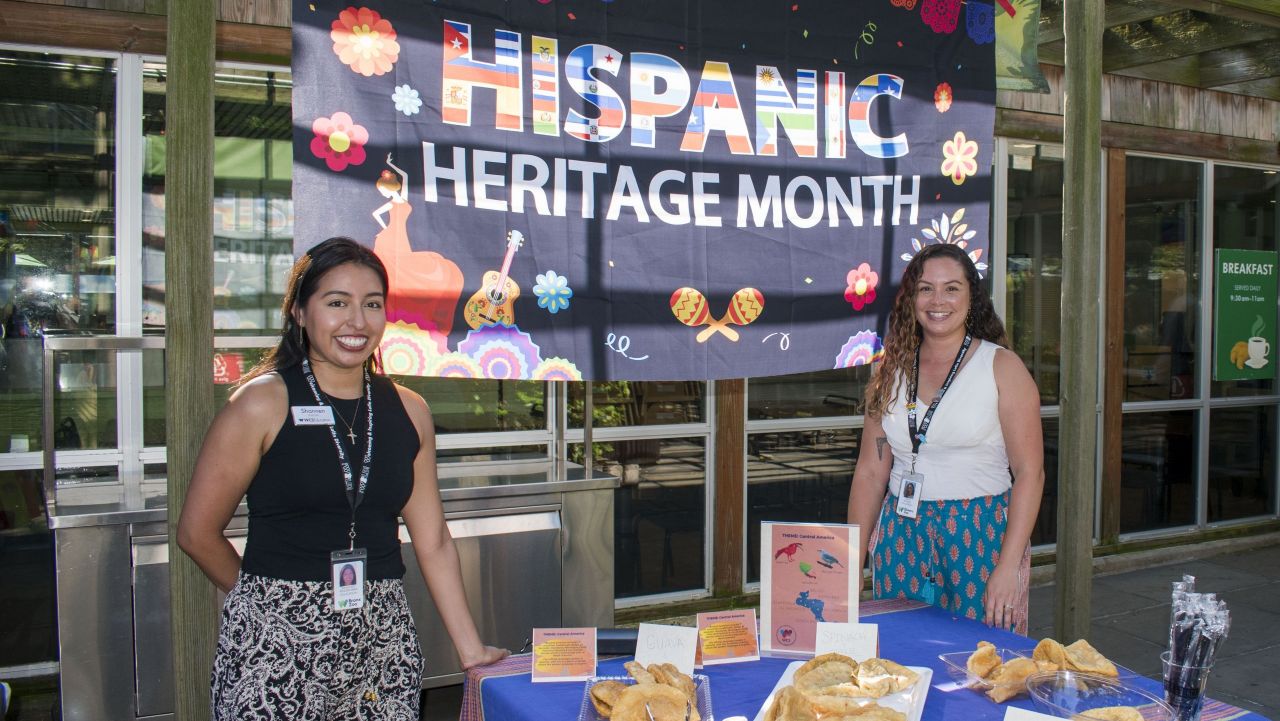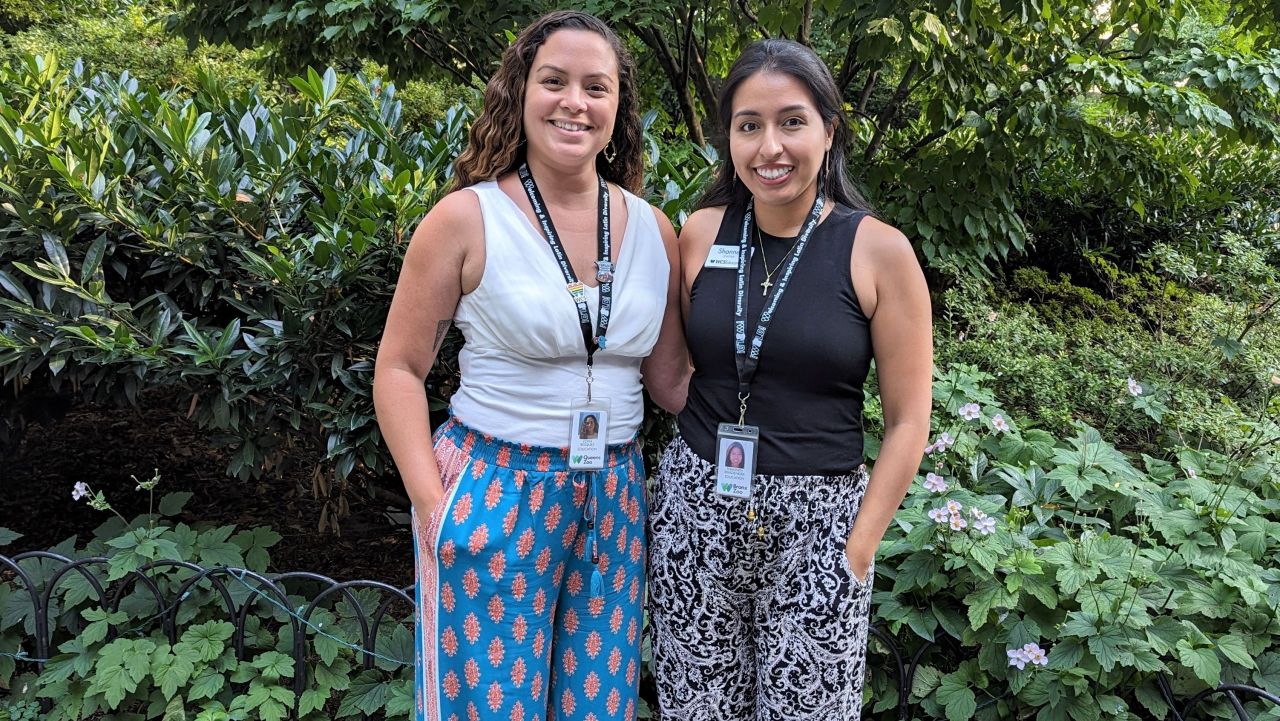Using Education to Promote Diversity in Conservation | Blog | Nature

For a Hispanic Heritage Month celebration, Shannen and Edna picked up empanadas made by a local restaurant and decorated a space at the Central Park Zoo. Photo credit ©WCS.
This year for Hispanic Heritage Month, we bring you a conversation between Edna Roquez and Shannen Rivadeneira, co-leads for the WILD (Welcoming and Inspiring Latin Diversity) employee resource group (ERG) at the Wildlife Conservation Society, which manages four New York City zoos and the New York Aquarium in addition to a global conservation program in more than 50 countries. Together, Edna and Shannen describe what drove them to the conservation field, how their Hispanic cultural background has shaped their experience, and how the field of conservation is opening up to new voices and perspectives.
Edna
I was born and raised in Queens in New York City. And I’ve always loved animals. Because I lived in the city, I would constantly go to the aquarium and the Bronx Zoo. Those are two of my home spots since I was in diapers. Both my father and my stepfather owned boats, and we would go out every weekend. So I had more of a fascination towards marine biology.
Shannen
Both of my parents are from Ecuador. I grew up in New Jersey, then Florida, and I spent many summers going back to spend time with extended family in Ecuador. It’s a beautiful country on the equator, so it has really great, consistent biomes. We have the Amazon, the mountains, the coast, and the Galapagos. And even though my family isn’t super outdoorsy, their appreciation for what their country has, I think was passed on to me, and I just took it and ran with it.
Edna
When my dad or my stepdad went fishing, they’d collect the fish they caught in a bucket. When they weren’t looking, I would throw the fish back in the water. Of course then something like half of them would be floating and I knew I couldn’t save them. It was so sad. But I always had conservation in my brain even before I knew what that word was. It was already in my heart. I don’t even think anyone taught me that.
Shannen
I love that! Being on the professional development team, my main responsibilities are primarily to deliver development workshops, primarily for teachers, but also for graduate students through the Advanced Inquiry Program masters degree classes we facilitate. So there’s a lot of variety in it. Outside of that, we partner with six other cultural institutions in New York City, through a program called Urban Advantage, which focuses on just bridging access for underserved communities throughout New York City to show that science institutions are places to visit as families and as individuals.

Edna and Shannen hosting a Cafecito gathering of WCS’s Welcoming & Inspiring Latin Diversity (WILD) employee resource group at the Central Park Zoo. Photo credit ©WCS.
Edna
I work with volunteers and visitors to our zoos. I think there’s a lot of confusion out there about what science is and who can participate in it. In workshops, we sometimes ask what is a scientist? What do they look like? For many kids, it’s a white man with a white coat and glasses, and they work in a lab. And I’m like, well, I was a field biologist at one point. I got my master’s degree in marine biology. I tagged sharks. And I’m a woman, I have curly hair. My roots are in Puerto Rico. You know, I’m from Caribbean descent. And I speak two languages. So it’s, like, breaking that pattern, breaking that mold. And seeing my daughter want to go into conservation from the get-go, knowing what that means already, makes me very proud.
Shannen
I think there are so many misconceptions about what science jobs can look like with our community specifically, and being able to have that representation and bring more knowledge for everybody so there can be an appreciation for STEM jobs. We need to support and encourage more young people with Hispanic heritage to enter jobs in these fields. I’m a kid from the 90s. I wanted to help endangered species. My parents were, like, “Can you please just be a doctor? Can you be a vet? We think we can help with that.” But I told them I want to help endangered animals, and they lovingly said, “Go ahead, Shannen. Figure it out.” It’s all so gratifying. And now to be co-leading the employee resource group with you.
Edna
I feel the same way. In fact I feel more connected to my culture than ever before. And I’m still learning. Shannen, you come from Ecuador. I’m learning about your heritage, too. And I’m learning about where other people in our ERG are from—whether it’s the Dominican Republic or Peru, or just different places. It’s cool to hear their lingo, what food they like, what music, what games. There’s just so much color.
Shannen
That’s why I like the cafecitos we sponsor during Hispanic Heritage Month. It’s a chance for staff to meet over coffee and get to know each other. We hit them with the feels, and throw in a little bit of education and a little bit of science. We’re starting fresh conversations and making sure that they lead somewhere.


